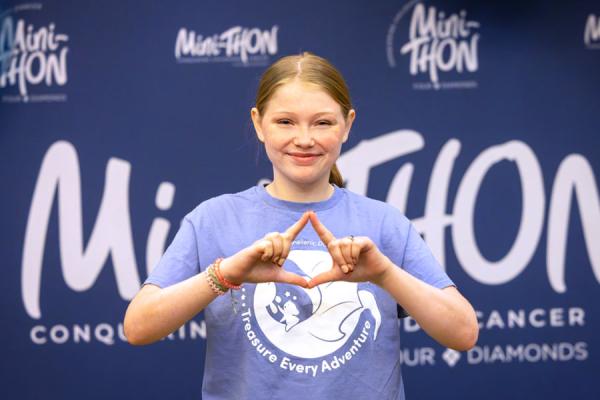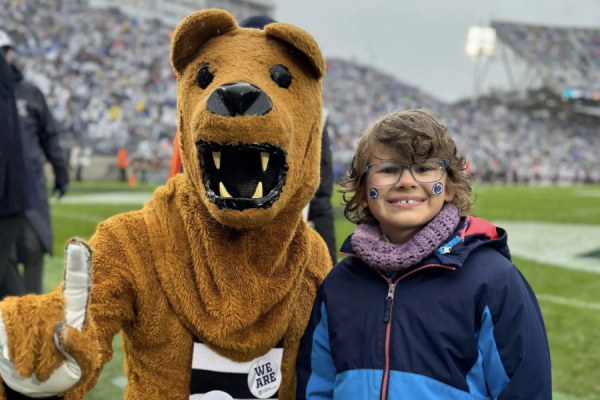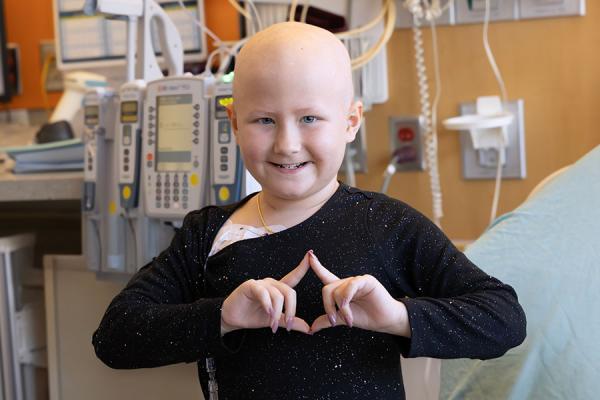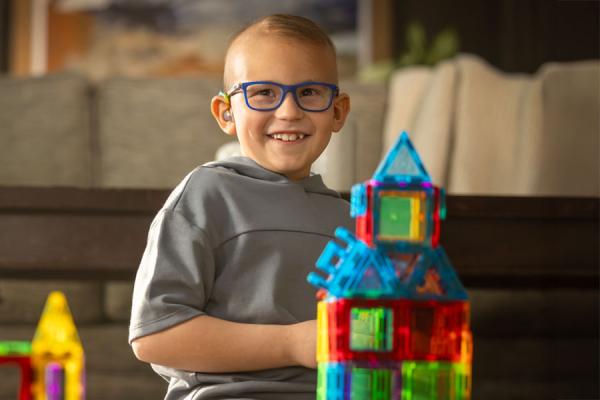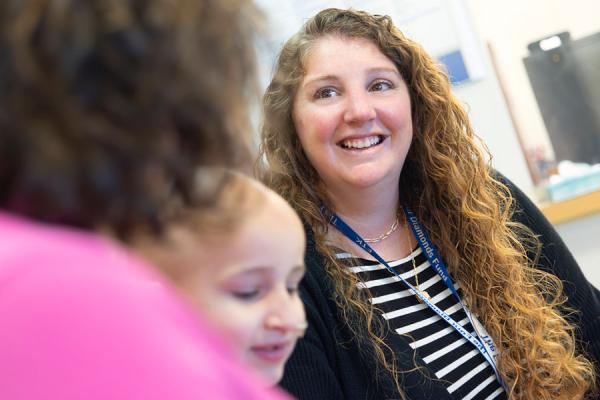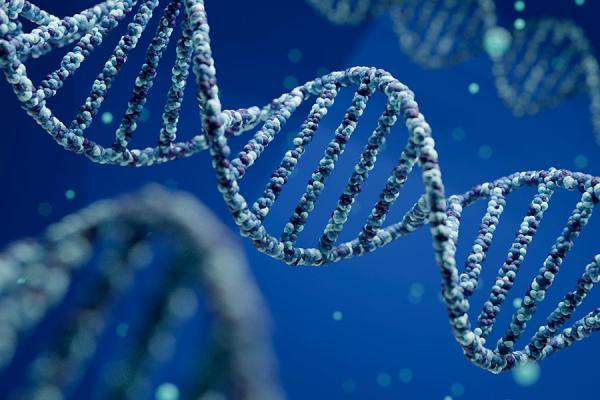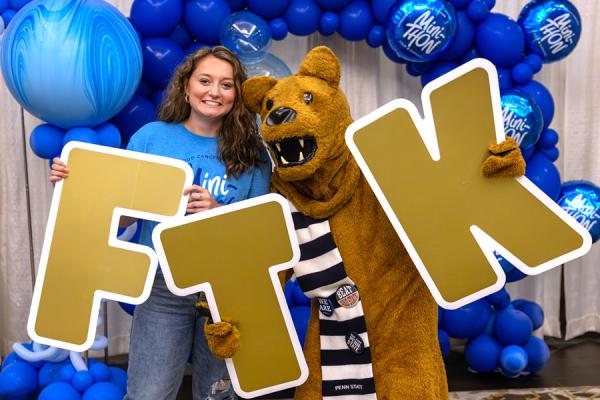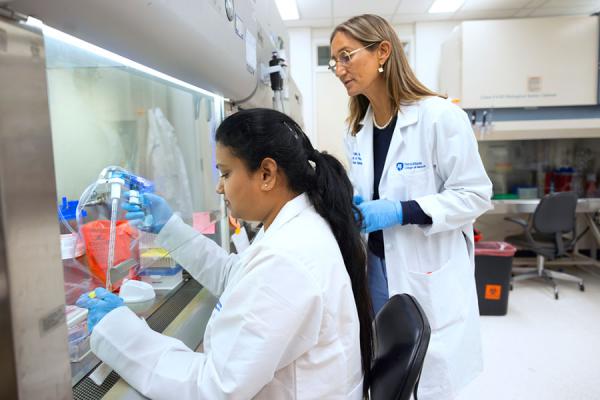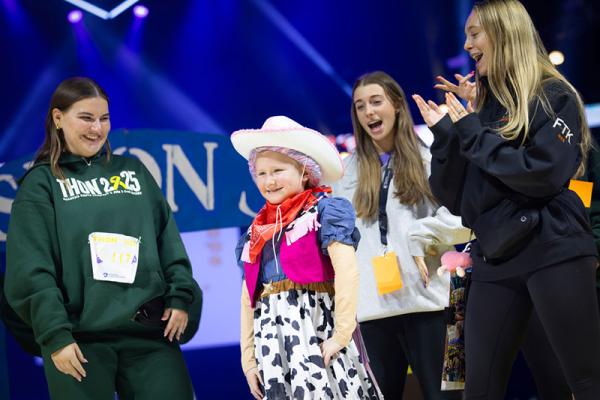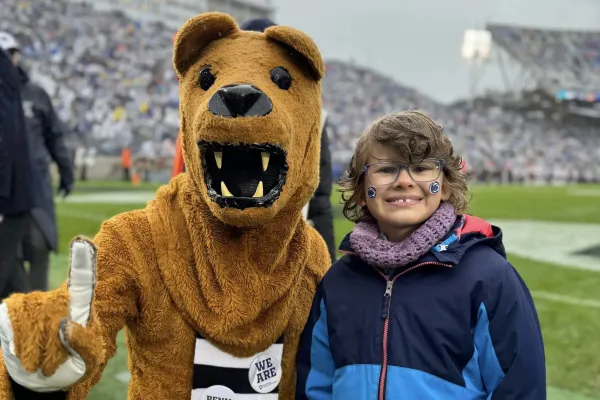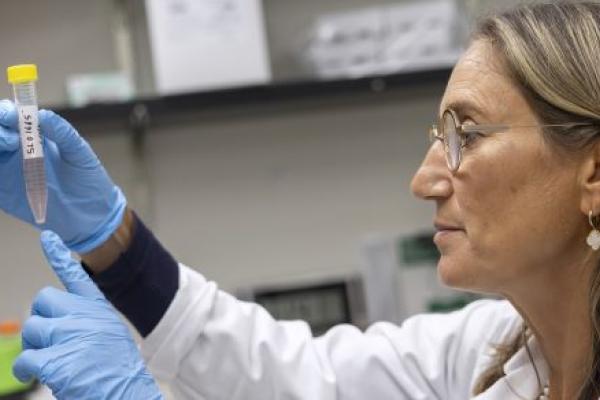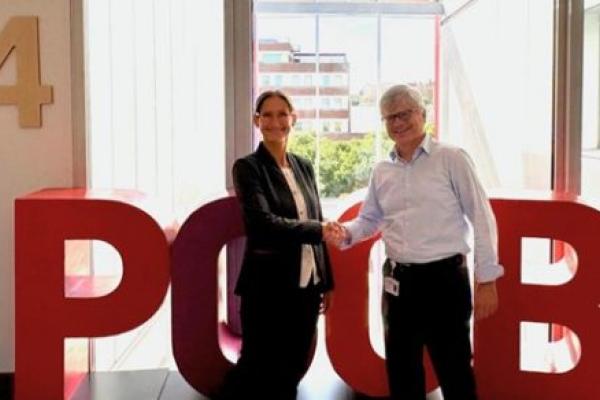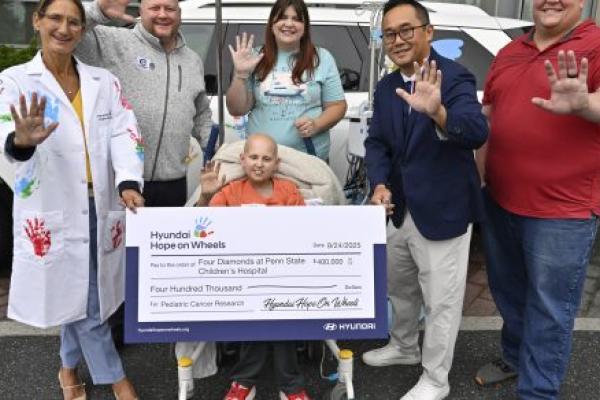A trusted leader and global destination for pediatric cancer care
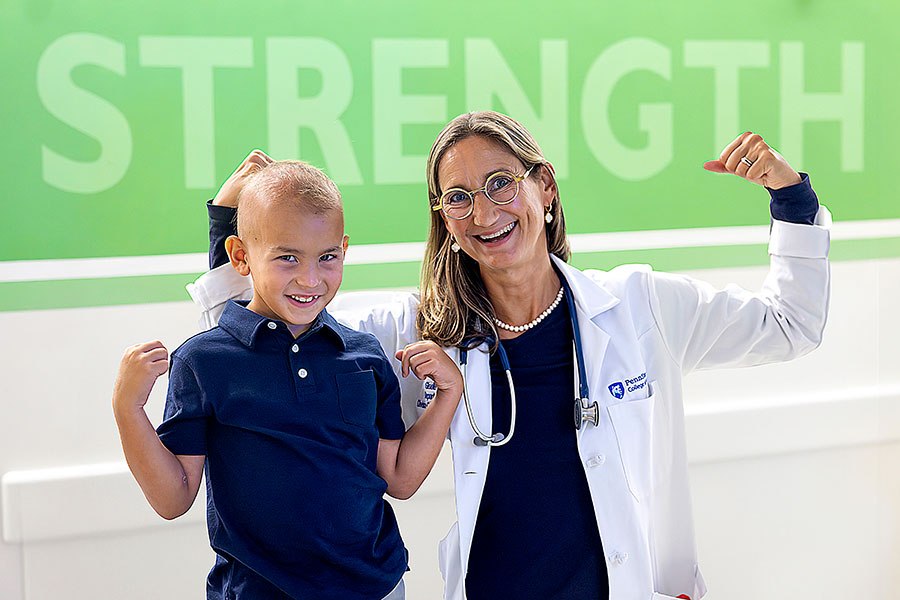 At Penn State Health Golisano Children’s Hospital, leading-edge research from Penn State College of Medicine fuels the Pediatric Oncology Division’s commitment to bringing the latest cancer treatments directly from the lab to the bedside. Our expert team combines this innovative science with compassionate, personalized care to treat every type of pediatric cancer. Trusted by families traveling from near and far, we provide advanced therapies and unwavering support throughout their child’s treatment. A key part of their support comes from our partner, Four Diamonds, which ensures eligible families never receive a bill for their child's care.
At Penn State Health Golisano Children’s Hospital, leading-edge research from Penn State College of Medicine fuels the Pediatric Oncology Division’s commitment to bringing the latest cancer treatments directly from the lab to the bedside. Our expert team combines this innovative science with compassionate, personalized care to treat every type of pediatric cancer. Trusted by families traveling from near and far, we provide advanced therapies and unwavering support throughout their child’s treatment. A key part of their support comes from our partner, Four Diamonds, which ensures eligible families never receive a bill for their child's care.

THON weekend is Feb. 20-22
Each year we look forward to this time when Penn State students, with the help of Four Diamonds, raise awareness and funding for Four Diamonds children being treated at Penn State Health Golisano Children’s Hospital and the research teams at Penn State College of Medicine. This support helps drive our shared mission to conquer childhood cancer.
Tune in and learn more about our patients, our providers and THON:
abc27: Friday, Feb. 13, 10 a.m.
WPVI 6abc: Friday, Feb. 20, 7:30 p.m.
WGAL Channel 8: Saturday, Feb. 21, 7 p.m.
Live stream THON
Donate to THON
Welcome. If you’re here, your family may be facing a challenging diagnosis. We want you to know you’re not alone. At every step, we’re here with leading-edge research, breakthrough treatments, access to innovative clinical trials and unwavering support for your entire family. Our Pediatric Hematology and Oncology team is dedicated to providing exceptional care with deep compassion. The children and families we care for are the true heroes who motivate us to work harder and inspire hope.
Giselle Saulnier Sholler, MD
Division Chief, Pediatric Hematology/Oncology/BMT
Why choose us? We won’t stop until every child is cured
At Penn State Health Golisano Children’s Hospital, we take pride in providing kids with cancer access to an unmatched level of expertise and comprehensive care. Each child has their own unique story and experience, but they all share the same incredible courage and determination. For many, ringing the bell at the end of treatment is a powerful and hopeful moment, but it’s not the end of the journey. Their bravery inspires us every day to keep working toward our goal of finding a cure for every child.
- Recognized in multiple years by U.S. News & World Report as one of the best children’s hospitals in the nation for pediatric cancer care, the Children’s Hospital has been a source of comprehensive, compassionate cancer care for infants, children and adolescents for more than 25 years.
- We are the lead hospital for the Beat Childhood Cancer Research Consortium, bringing new therapies to children with cancer.
- We are a member of the Children’s Oncology Group, a National Cancer Institute-funded organization dedicated to children with cancer.
- Families from around the world turn to our Children’s Hospital for its unique blend of compassionate, personalized care and the most advanced cancer treatments.
- Four Diamonds covers 100 percent of all medical expenses related to cancer care not covered by insurance for eligible Four Diamonds children.
Dedicated oncology specialty teams and programs
At Penn State Health Golisano Children’s Hospital, we treat all types of children’s cancer. We also offer dedicated oncology programs in several specific areas.
Innovative pediatric cancer care
Penn State Health Golisano Children’s Hospital is proud to lead the way in pediatric oncology health care innovation. By combining scientific breakthroughs and precision medicine with compassionate, family-centered support, we’re redefining what’s possible in children’s health.
Patient and family support
Penn State Health Golisano Children’s Hospital offers comprehensive support services for patients and families to ensure you feel informed, empowered and cared for throughout your child’s health journey. Explore our full range of Patient and Family Support resources, offering emotional and psychological care, physical health and wellness services, educational tools, and opportunities for social and community connection.
Unique partnerships critical to care
Four Diamonds
Four Diamonds makes exceptional care and high-risk/high-reward research possible across seven dedicated labs, all focused on finding cures for childhood cancer. Beyond research, it also funds enhanced wrap-around services that care for the whole child, supporting them within their families, schools and communities. Most importantly, Four Diamonds-eligible families never receive a bill for their cancer care, removing the financial burden during an incredibly difficult time.
Watch how Lauryn Six support became personal when she was diagnosed with leukemia
THON
THONTM is a childhood cancer nonprofit organization run by Penn State students. It is dedicated to helping children and families fight the battle by raising funds and awareness, providing comprehensive support and funding innovative research. THON’s sole beneficiary is Four Diamonds.
Penn State College of Medicine
Penn State College of Medicine is at the forefront of leading-edge research and pioneering treatments in the pursuit of curing pediatric cancer. Working closely with Penn State Health clinicians, our experts in the basic sciences turn scientific discoveries into better cancer care. Together, we advance knowledge and medical breakthroughs to improve health outcomes.
Our work is fueled by the hope these medical discoveries bring to our patients and families and by our commitment to improving health worldwide.
Watch how Penn State College of Medicine is Fighting for a Cure
Our patients are our mission: Hear from other parents
At Penn State Health Golisano Children’s Hospital, we take pride in providing kids with cancer access to an unmatched level of expertise and breadth of services that can’t be found anywhere else. Each child has their own unique story and experience, but they all share incredible courage and determination.
This inspires us every day to keep pushing forward in our mission to fight until every child is cured.
Find a Provider
Meet our doctors, view their profiles and select the one that’s right for your child.
Our convenient locations
Penn State Health Golisano Children’s Hospital (inpatient/outpatient)
Call: 717-531-6012
Fax referrals and records: 717-531-0332
Pediatric Hematology/Oncology Infusion Clinic
Call: 717-531-6807
FAQs
What is pediatric cancer?
Pediatric cancer refers to cancers that occur in children and adolescents, usually between the ages of 0 and 19. Unlike adult cancers, which are often linked to lifestyle or environmental factors, pediatric cancers are typically caused by genetic mutations early in life. These cancers can affect different parts of the body, such as the blood (leukemia), brain (brain tumors) and organs (neuroblastoma, Wilms tumor, etc.).
What is the most common pediatric cancer?
The most common childhood cancers are leukemia, brain tumors and neuroblastoma. Leukemia, especially acute lymphoblastic leukemia (ALL), affects the blood and bone marrow. Brain tumors, which can occur in various parts of the brain, are the second most common and often require specialized treatment. Neuroblastoma, which mostly affects infants and young children, comes from nerve cells and can spread quickly if not detected early. In addition to these, rare cancers like retinoblastoma (affecting the eyes) and Wilms tumor (a type of kidney cancer) also require fast, effective treatment for the best outcomes.
Can pediatric cancer be cured?
Pediatric cancers tend to be more responsive to treatment, and children often have better survival rates compared to adults diagnosed with cancer. Understanding the symptoms of cancer in children is crucial for early diagnosis and effective treatment.
What pediatric cancer conditions do we treat?
We treat all pediatric blood disorders and cancers, including the following.
Leukemias
- Acute lymphoblastic leukemia (ALL)
- Acute myelocytic leukemia (AML)
- Chronic myelocytic leukemia (CML)
- Juvenile chronic myelogenous leukemia (JCML)
- Juvenile myelomonocytic leukemia (JMML)
Brain and central nervous system (CNS) tumors
- Medulloblastoma
- Primitive neuroectodermal tumor (PNET)
- Ependymoma
- Astrocytoma (high grade, cerebellar, low grade)
- Glioblastoma
- Brainstem gliomas
- Central nervous system (CNS) germ cell tumors
Solid tumors
- Non-Hodgkin’s lymphoma
- Hodgkin’s lymphoma
- Neuroblastoma
- Wilms’ tumor
- Rhabdomyosarcoma
- Bone tumors
- Ewing’s sarcoma
- Osteosarcoma
- Hepatoblastoma
- Germ cell tumors
Lymphomas
- Retinoblastoma
- Non-Hodgkin’s lymphoma
Blood Disorders
- Hemophilia
- Sickle cell anemia
- Thrombotic disorders
Other Conditions
- Neurofibromatosis Type 1
What treatment options are available?
- Chemotherapy and novel targeted therapies: Medicines that kill cancer cells or block specific changes in cancer cells to stop them from growing.
- Immunotherapy: Boosts your body’s natural defenses to fight cancer using treatments like special antibodies, cancer vaccines or CAR T-cell therapy.
- Radiation therapy: Uses powerful energy (like X-rays) to destroy cancer cells.
- Surgery/neurosurgery: Expert surgeons remove tumors, even in complex or delicate areas.
- Interventional radiology: Minimally invasive procedures guided by imaging (like MRI or CT scans) to treat tumors, including advanced options like Gamma Knife, ablation or blocking blood flow to tumors.
- Clinical trials: Research on targeted therapies gives our patients access to the latest cancer treatments.




